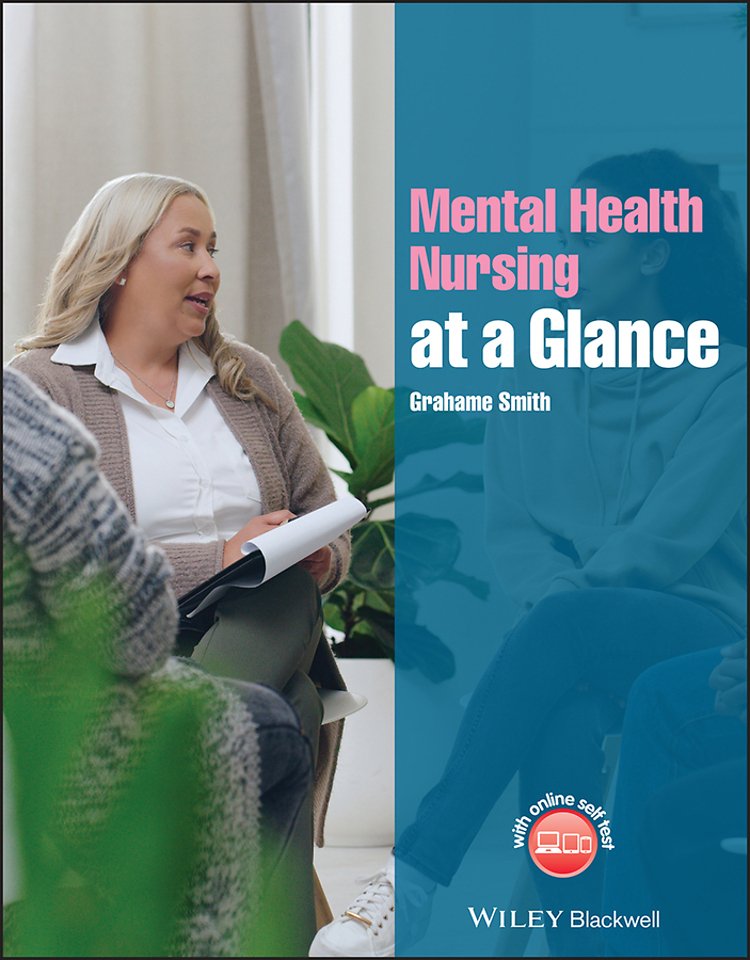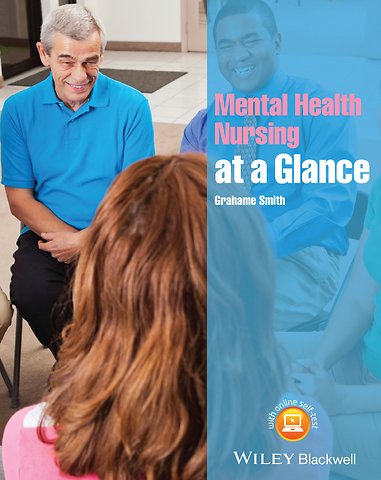Mental Health Nursing at a Glance
Samenvatting
Everything you need to know about Mental Health Nursing at a Glance!
From the publishers of the market–leading at a Glance series comes the perfect companion for study and revision for pre–registration mental health nursing students. This brand new nursing title is the perfect accompaniment for pre–registration nursing courses, and is the revision aid that you have been waiting for! Divided into three sections, this book first explores the essential clinical skills needed by nurses, using the NMC Essential Skills Clusters as an organising framework. The second section goes on to look at common disorders and approaches. The third section then discusses the leadership and organisational skills required by nurses, again derived from the NMC standards.
Key features:
Breaks down complex aspects of mental health care in an accessible and un–intimidating way
The perfect revision and consolidation textbook
Linked closely with the NMC standards for pre–registration nursing education, and the essential skills clusters framework
Explores a broad range of mental health disorders, from care of children right up to care of older people
Looks at mental health nursing in all settings, including acute, forensic and community
Highly visual colour presentation
Includes boxes, summary boxes, reflective opportunities and case studies to improve the learning experience
Specificaties
Inhoudsopgave
<p>About the companion website x</p>
<p>Introduction xii</p>
<p>Practice tree example xiv</p>
<p>Part 1 Essential skills 1</p>
<p>1 Care, compassion and communication 2</p>
<p>2 Building therapeutic relationships 4</p>
<p>3 Values–based practice 6</p>
<p>4 Managing clinical risk 8</p>
<p>5 Infection prevention and control 10</p>
<p>6 Nutrition and fluid management 12</p>
<p>7 Elimination 14</p>
<p>8 Clinical observations 16</p>
<p>9 Documentation 18</p>
<p>10 Medicines management 20</p>
<p>Part 2 Nursing individuals with mental health needs 23</p>
<p>11 Assessment 24</p>
<p>12 Risk 26</p>
<p>13 Classification 28</p>
<p>14 Psychological interventions 31</p>
<p>15 Schizophrenia 34</p>
<p>16 Depression 36</p>
<p>17 Bipolar affective disorder 38</p>
<p>18 Anxiety 40</p>
<p>19 Eating disorders 42</p>
<p>20 Personality disorders 44</p>
<p>21 Learning disabilities and mental health 46</p>
<p>22 Functional disorders in older adults 48</p>
<p>23 Dementia 50</p>
<p>24 Acute confusional states 52</p>
<p>25 Drug and alcohol misuse 54</p>
<p>26 Children and adolescent mental health 56</p>
<p>27 Recovery 58</p>
<p>28 Physical wellbeing 60</p>
<p>29 Mental health law 62</p>
<p>30 Medication and ECT 66</p>
<p>Part 3 Leadership skills 71</p>
<p>31 Organising care 72</p>
<p>32 Leadership 74</p>
<p>33 Managing people 76</p>
<p>34 Time management 78</p>
<p>35 Decision–making 80</p>
<p>36 Utilising research 82</p>
<p>37 Reflection 84</p>
<p>38 Lifelong learning 86</p>
<p>Appendix: Clinical procedures 88</p>
<p>References and bibliography 92</p>
<p>Glossary 93</p>
<p>Index 95</p>

